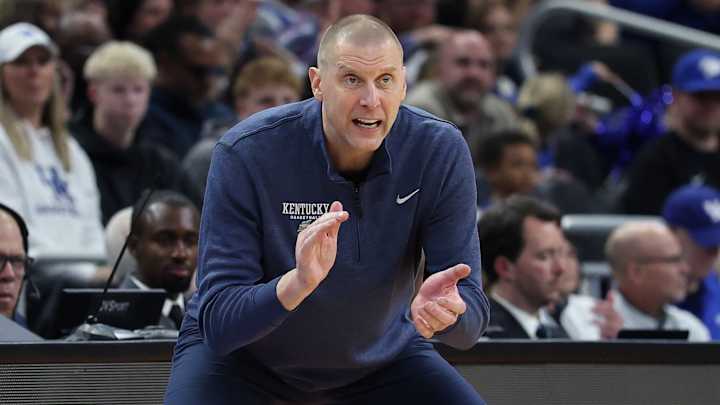The New Breed of Coach: Why Kentucky’s Mark Pope is Thriving in the NIL and Transfer Portal Chaos While Legends Like Tom Izzo Push Back — Is This the Future of College Hoops?
College basketball in 2025 looks nothing like the sport fans grew up with. The transfer portal spins year-round, Name, Image, and Likeness (NIL) deals are rewriting recruiting battles, and entire rosters can be flipped overnight. For some of the game’s most respected legends, this new era feels like an unraveling of everything college sports once stood for.
But not everyone is fighting against the tide. Kentucky head coach Mark Pope is doing the opposite — embracing it.
Pope’s Bold Stance in a Shifting Era
While many coaches lament the chaos of roster turnover and outside influence, Pope calls this moment the greatest time to be a college coach. In his eyes, players need guidance now more than ever, not less.
“It’s the most challenging, but also the most rewarding,” Pope recently told reporters. “The players need us more than ever before.”
That single statement sums up his philosophy. While some see the NIL and transfer portal as a threat, Pope views them as tools — opportunities to build, connect, and adapt faster than the competition.
Legends of the Game Push Back
Contrast Pope’s optimism with the voice of Michigan State head coach Tom Izzo, one of the most respected figures in college basketball. Izzo has led the Spartans to 25 straight NCAA tournaments, but he has been blunt about his frustration with the system.
“I’m still fist-fighting the fight,” Izzo said. “I still want to help kids live their dream… all the right reasons. But it was set up poorly by the people in charge.”
His concern is less about athletes profiting — which he supports — and more about the middlemen now surrounding players. Agents, handlers, and collectives often prioritize short-term financial gain over long-term development. For Izzo, the purity of college basketball is slipping away.
This isn’t just Izzo’s sentiment. Across the country, veteran coaches are questioning whether the modern version of the sport aligns with its core values.
Nick Saban’s Warning Shot
Even outside basketball, some of the most powerful voices in college sports are weighing in. Nick Saban, who recently retired after a historic run at Alabama, warned that NIL and transfer rules could make college athletics unrecognizable.
Saban’s words hit hard: the fear is not that players benefit financially, but that college sports could morph into something resembling professional free agency — without the stability or structure that professional leagues provide.
A Tale of Two Philosophies
So the sport stands at a crossroads. On one side are legends like Izzo, holding on to the traditional model where development and loyalty shaped careers. On the other are coaches like Pope, who see the new rules as inevitable — and potentially advantageous.
The numbers back up the urgency of the moment. In 2025 alone, more than 2,600 players entered the transfer portal — a record-breaking figure that amounts to seven full rosters’ worth of talent. Add in the fact that NIL collectives and agents now play a massive role in recruitment, and it’s clear this is not the same college basketball landscape that John Wooden or Dean Smith once dominated.
The Future Belongs to the Bold?
If there’s one takeaway from this new era, it’s that adaptability is king. Coaches unwilling to adjust may find themselves left behind, while those who can build relationships, manage NIL partnerships, and recruit with speed and creativity may rise faster than ever before.
Mark Pope has made his choice — lean into the challenge, embrace the chaos, and build something new. Whether his philosophy will spark a renaissance at Kentucky or simply become another experiment in a turbulent era remains to be seen.
But one thing is certain: college basketball will never go back to what it was.
And the bigger question lingers — will Pope’s approach become the blueprint for the future, or will the old guard’s resistance slow the tide? Fans, recruits, and programs alike are watching closely.





























